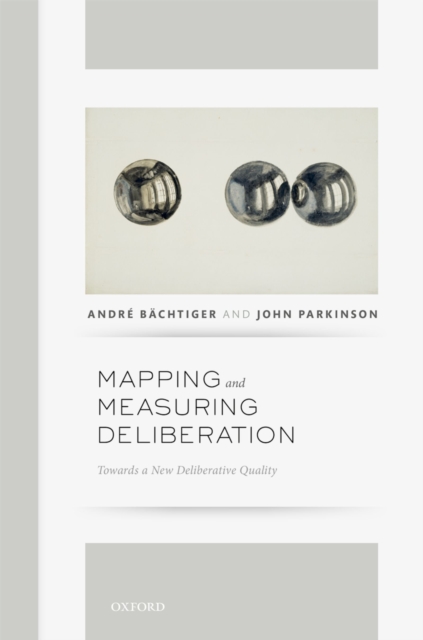
Mapping and Measuring Deliberation : Towards a New Deliberative Quality PDF
by Andre Bachtiger, John Parkinson
Description
Deliberative democracy has challenged two widely-accepted nostrums about democratic politics: that people lack the capacities for effective self-government; and that democratic procedures are arbitrary and do not reflect popular will; indeed, that the idea of popular will is itself illusory.
On the contrary, deliberative democrats have shown that people are capable of being sophisticated, creative problem solvers, given the right opportunities in the right kinds ofdemocratic institutions. But deliberative empirical research has its own problems.
In this book two leading deliberative scholars review decades of that research and reveal three important issues.
First, the concept 'deliberation' has been inflated so much as to lose empirical bite; second, deliberation has been equated with entire processes of which it is just one feature; and third, such processes are confused with democracy in a deliberative mode more generally.
In other words, studies frequently apply micro-leveltools and concepts to make macro- and meso-level judgements, and vice versa. Instead, Bächtiger and Parkinson argue that deliberation must be understood as contingent, performative, and distributed.
They argue that deliberation needs to be disentangled from other communicative modes; that appropriate tools need to be deployed at the right level of analysis; and that scholars need to be clear about whether they are making additive judgements or summative ones.
They then apply that understanding to set out a newagenda and new empirical tools for deliberative empirical scholarship at the micro, meso, and macro levels.
Information
-
Download - Immediately Available
- Format:PDF
- Pages:224 pages
- Publisher:OUP Oxford
- Publication Date:03/01/2019
- Category:
- ISBN:9780191652356
Other Formats
- EPUB from £58.59
Information
-
Download - Immediately Available
- Format:PDF
- Pages:224 pages
- Publisher:OUP Oxford
- Publication Date:03/01/2019
- Category:
- ISBN:9780191652356






